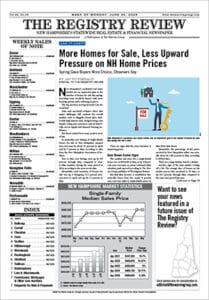A majority of housing economists expect the nation’s housing market to swing “firmly” in buyers’ favor before the end of 2023.
A new survey of 107 housing economists commissioned by Zillow shows that 44 percent think the market will turn into a buyer’s market some time in 2023 thanks to rising interest rates and home prices, while 12 percent think that it will do so this year. Another 24 percent think it will take until 2024 for that to happen, 13 percent named 2025 as the date and another 8 percent thought a buyer’s market won’t arrive until after then. The survey was conducted Aug. 16-27 by Pulsonomics.
But the cooling won’t affect fast-growing markets in the South like Atlanta, Zillow’s experts said. Instead, they’ll retain their heat while metros like Boise, Austin and Raleigh that are coming off two years of intense growth will continue cooling quickly. Similar cooling will likely hit vacation spots, most of Zillow’s experts said, while suburban and exurban demand will remain strong. Cheap Midwest markets like Minneapolis will come out the best, the experts said, with few predicting price declines there.
“After the frantic rush for real estate over the past two years, buyers are finally seeing a calmer market. Those still able to afford homeownership are quickly regaining lost leverage, but this shift to a more balanced market is still in its early stages,” Nicole Bachaud, senior economist at Zillow, said in a statement released along with the survey results. “Home shoppers priced out of the market are in a tight spot, though, as high and rising rents could cut further into their ability to save up for a down payment.”
On the rental side, the economists surveyed predicted the current, strong environment for multifamily landlords and developers will stick around in the short term as first-time buyers continue to be locked out of the purchase market in ever-greater numbers
But that will start to wane next year: the panelists predict an average of 5.4 percent rent growth in 2023, lower than the 8.6 percent the experts foresee this year but faster than historical trends.
“U.S. home price appreciation is clearly easing up in response to the historic surge in mortgage rates,” Terry Loebs, founder of Pulsenomics said in a statement. “Our expert panel’s mean projections indicate that residential rent price growth is expected to outpace headline CPI inflation over the coming three years and exceed home price growth through at least 2025. Despite softening house prices, this implies that affordability hurdles for prospective first-time homeowners will remain high and persist for years to come.”

